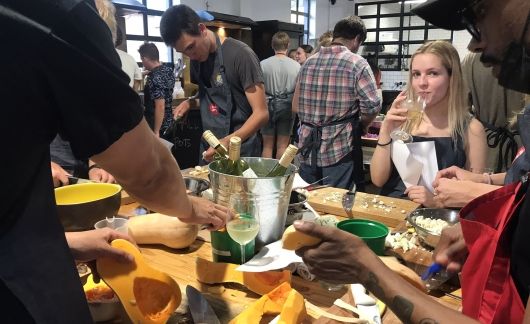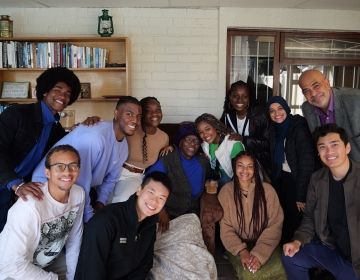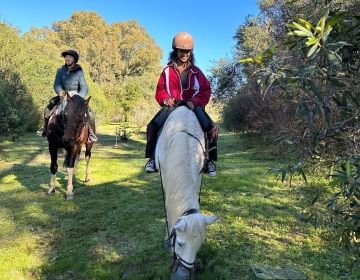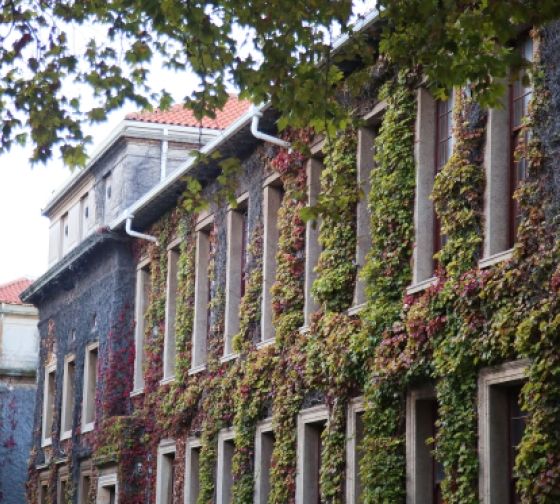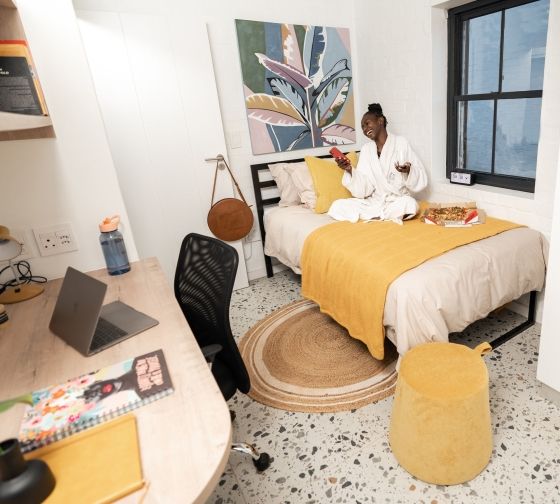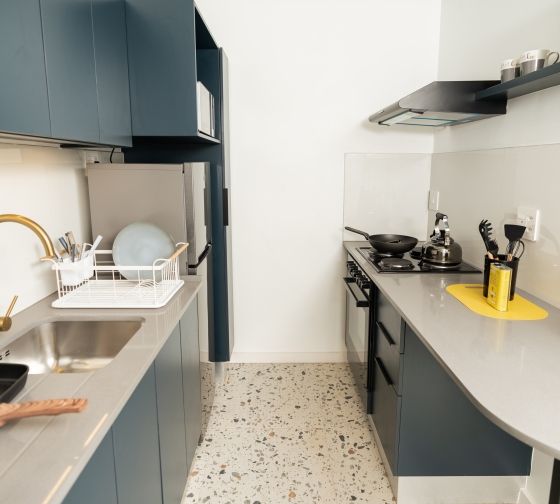
Arts + Sciences
Unique Experiences
Connect
with South African students in your shared student accommodation.
Serve
Cape Town people in need – students say it is a pinnacle of their study abroad experience.
Live and learn
where natural beauty and outdoor fun are part of everyday life.
12
official languages
4
UNESCO World Heritage Sites
114
curves on the breathtaking Chapman’s Peak Drive
Your Destination
With a glorious climate and natural icons like Table Mountain and stunning beaches, it is no wonder that Cape Town is Africa’s number-one tourist destination. Day and night, this multicultural city offers much to do: water sports, mountaineering, nightclubs, and restaurants. As an Arts and Sciences student, you’ll take classes at the University of Cape Town (UCT), the top-ranked university in Africa. Cape Town challenges you to understand the issues of joining the global economy while grappling with vast socioeconomic inequalities born from its colonial and apartheid past.
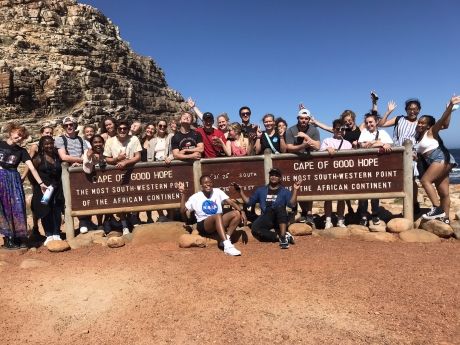
Excursions & Activities
Featured Excursion:
Visit the most southwestern point of the African continent, the Cape of Good Hope, stopping along the way to see the African penguins in Simonstown. On this day trip, you explore the beauty of the south peninsula and have fun browsing shops and stalls at the vibrant Hout Bay market.
Other activities and study tours:
- Join local fans at a sports stadium to watch cricket or rugby.
- See culture come to life with art on First Thursdays, theater, music, and other productions.
- Enjoy the various scenic walks and/or heights the city has to offer.
- Visit local communities to experience daily life in marginalized townships.

Internship and/or Volunteering Opportunities
Volunteering: Receive more than you give by participating in an Impact Project in a local community or donating your time on a weekly basis by tutoring students, working with health and medical organizations, providing services for the homeless, or using your administrative skills for the benefit of a local organization. Join one of many UCT clubs to participate in community service alongside fellow students. This is a not-for-credit opportunity.
Local engagement: Resident Assistants (RAs) are UCT students, recruited and trained by CIEE to help with cultural excursions, who live with CIEE students in CIEE’s off-campus apartments and introduce CIEE students to the UCT campus community.
Meet with local community members through various CIEE initiatives, such as Sunday lunches with a host family, or by visiting community organizations in the Langa community.
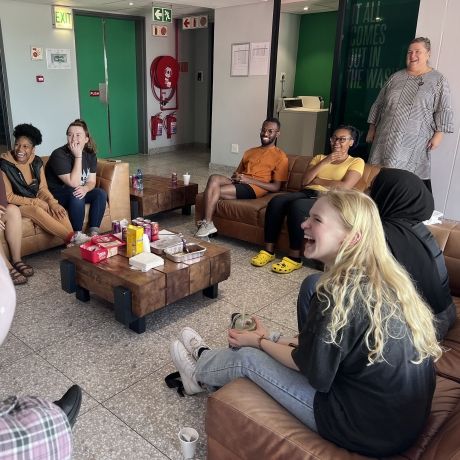
Academic Projects
Internship: A for-credit internship in English allows students the opportunity to gain practical work experience in a local company within a variety of industry sectors. Students can choose to intern for NGOs, schools, publishing companies, marketing agencies, businesses, and more. Internships include weekly classroom components that enrich the experience. Students interested in the internship must get home school approval and submit additional materials as part of their course selection.
Directed Independent Research: Directed Independent Research is for qualified students who have demonstrated academic rigor and curiosity toward a particular research topic. To be accepted into this course, students must submit a structured proposal during course selection with the topic of exploration, significance of the research topic as it relates to South Africa, methodology, a literature review, and a schedule of research milestones. Upon research completion, students will present their findings to a panel of academics. Students interested must get home school approval and submit additional materials as part of their course selection.
Program Blogs
Reflecting on South Africa as a Frederick Douglass Global Fellow
By: Sam Li Stepping off the plane in Cape Town felt like stepping into a whirlwind of vibrant energy, complex history, and breathtaking landscapes. This wasn't just any summer adventure... keep reading
Equestrian Getaway in Cape Town
Authored by Haroni Sahilu (she/her) (Haroni is a rising senior at Arizona State University, majoring in Philosophy and Justice Studies. During her time in Cape Town, she hopes to aid... keep reading
Wildlife Sightings on Safari Trip in Kruger National Park
Authored by Heather Wang (she/her) (Heather is a 2nd-year undergraduate student at Dartmouth College, majoring in Engineering Physics and Philosophy. She hopes to research astronomy and photometry during her time... keep reading
Housing & Meals
Housing
CIEE Cape Town offers comfortable apartments conveniently accessible to the CIEE study center, public transportation, shops, and other amenities. All rooms are fully furnished, offer a full kitchen, and feature Wi-Fi access. CIEE supplies cutlery, crockery, and bed linens but students must bring their own towels. Students can enjoy social interaction with their peers and local South African students in a variety of communal areas. They can also appreciate the quiet spaces that allow them to study on their own, or work on tasks in a group.
Standard Housing: Includes double occupancy or single occupancy. Residence Halls will have shared living spaces, including a kitchen and bathroom. The accommodation is within a 25-minute walk to CIEE Cape Town.
Meals
Residence Hall: Students are responsible for all meals. They can cook in their residence hall or eat on or off campus.
Academics
This CIEE program allows students to continue their studies while they explore contemporary South African society. Courses are taken together with other local and international students from all University of Cape Town faculties, except health sciences and the Graduate School of Business. Areas of study include languages and literatures, gender studies, economics, sociology, history, economics, political studies, engineering, business, film and media, STEM fields, law, and environmental and geographical sciences. In addition, students can choose to take the Intercultural Communication and Leadership course offered by CIEE faculty.
Students participate in a variety of cultural activities and are strongly encouraged to participate in community service opportunities offered by UCT and CIEE.
University of Cape Town (UCT) Established as South African College in 1829, is internationally recognized as the top-ranked African research university. In 2022, UCT ranked 160th in the world (QS rankings). The UCT campus has beautiful grounds and attractive facilities which include a range of commercial, medical, recreational, and sporting facilities.
CIEE students are eligible for study in most faculties at UCT, i.e. Social Sciences and Arts; Law, Commerce, Science, Engineering and the Built Environment - provided students fulfil any pre-requirements per course. Courses in the Faculty of Health Sciences and Graduate School of Business are not a possibility.
Arizona State University: Enhance your international academic coursework with optional online courses that best align with your degree requirements and interests. ASU offers thousands of online courses in asynchronous sessions that fit within the CIEE academic calendar, so you can study abroad with CIEE while continuing to meet all your academic goals.
Course Information
- University of Cape Town follows the South African Higher Education Qualifications Framework (HEQF) credit system.
- 1 HEQF credit typically equals .222 U.S. semester credits and represents approximately 10 notional hours
- Most courses are worth 12-30 HEQF credits
- Courses may be taken in all University of Cape Town Departments, except Health Sciences and the Graduate School of Business.
- Students applying for the Directed Independent Research are required to submit additional materials during the course selection process.
Academic Projects
Communication, Journalism, and Media
Academic Projects
Communication, Journalism, and Media
UNIVERSITY OF CAPE TOWN
Below is a list of the faculties available at University of Cape Town. For specific course listings, please refer to the UCT Handbook. Please note that not all courses within UCT faculties or departments are suitable for program participants, and many have prerequisites.
Faculty of Commerce
Accounting
Finance and Tax
Management
Actuarial Science
Economics
Commerce IT (Information Systems)
Nelson Mandela School of Public Governance
Faculty of Engineering and the Built Environment
Mechanical, Chemical, Civil, and Electrical Engineering
Geomatics
Architecture and Planning
Faculty of Humanities
African Languages and Literature
African Studies
Afrikaans and Netherlandic Studies
Classics
Drama
English Literature
Film and Media Studies
Fine Art
Hebrew and Jewish Studies
History
History of Art
Independent Research
Linguistics
Music
Philosophy
Political Studies
Psychology
Religious Studies
Social Anthropology
Sociology
Theory of Literature
Faculty of Science
Archaeology
Astronomy
Botany
Chemistry
Computer Science
Environmental and Geographical Science
Geological Sciences
Mathematics
Oceanography
Physics
Statistical Sciences
Zoology
Faculty of Law
Criminology
CIEE proudly partners with ASU to deliver asynchronous, online coursework that aligns with your degree requirements from anywhere you study abroad.
CIEE and ASU offer courses online per program eligibility, at no additional charge. Be sure to review online courses with your home school advisor.
Check the CIEE Program Dates and ASU start dates below to maximize course options within your program!
Search ASU Online Courses BROWSE FAQs for more INFO
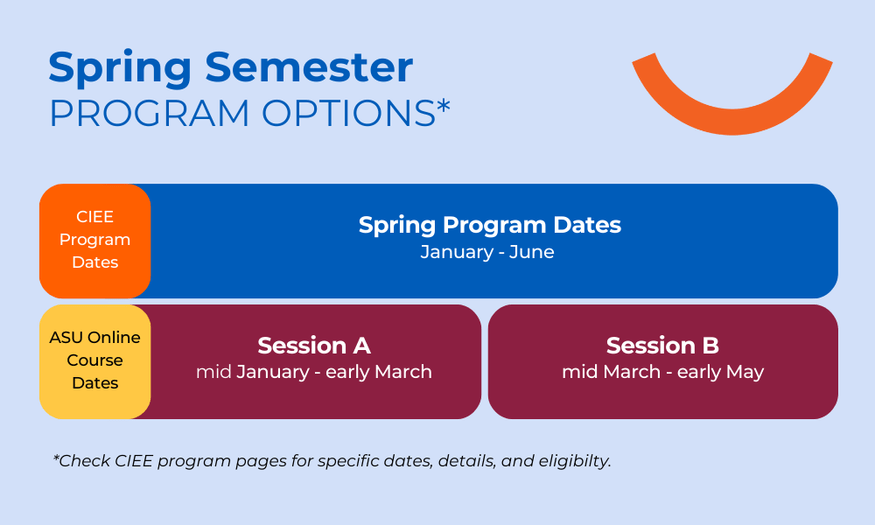
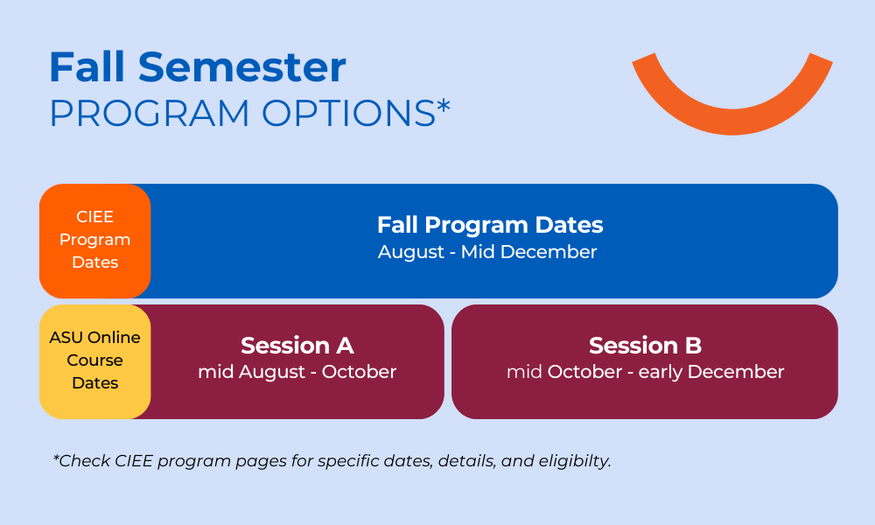
Note: This course listing is for informational purposes only and does not constitute a contract between CIEE and any applicant, student, institution, or other party. The courses, as described, may be subject to change as a result of ongoing curricular revisions, assignment of lecturers and teaching staff, and program development. Courses may be canceled due to insufficient enrollment.
"(GI)" denotes courses that originated at CIEE's Global Institutes and that are offered at multiple CIEE sites.
Scholarships & Grants
CIEE offers scholarships and grants annually to help students like you make your study abroad dream a reality.
Students who apply to this program are eligible for the following scholarships and grants:
- Wollitzer Merit Scholarships in Area or Comparative Studies
- Ping Scholarships for Academic Excellence
- Global Access Initiative (GAIN) Grants
- Stohl International Undergraduate Research Scholarships
- CIEE Gilman Go Global Grant
- MSI Grant
To be considered, submit the CIEE Scholarships & Grants application within your CIEE program application.
Dates & Fees
You get more for every dollar when you study abroad with CIEE, because our high-quality programs include everything from excursions to insurance. There are no hidden charges, and no disappointing surprises when you arrive.
Program |
Application Due |
Start Date |
End Date |
Fees & Housing |
|---|---|---|---|---|
| Program Fall 2025 18 weeks | Application Due Deadline Passed | Start Date | End Date | Fees & Housing $20,950 |
| Program Spring 2026 20 weeks | Start Date * | End Date * |
*Dates for this program are provided as tentative dates. Please consult with your study abroad advisor to confirm dates before purchasing your flights.
To help you budget, keep in mind that students are responsible for the cost of international airfare, local transportation, books and supplies, visas, and personal expenses. In addition, your college or university may charge additional fees for study abroad, or may require you to receive a transcript via CIEE's School of Record, which carries an additional fee of $500.
Program Fees
CIEE offers the most student support of any provider in its program fee, including an airport greeting, full-time leadership and support, orientation, cultural activities, local excursions, pre-departure advising, and CIEE iNext travel protection with benefits.
| Participation Confirmation | $300 * |
| Educational Costs | $16,706 ** |
| Housing | $3,750 *** |
| Insurance | $194 |
| Total Fees | $20,950 |
Financial Aid
CIEE offers the most grants and scholarships of any study abroad organization, including $8 million/year in travel grants, merit-based scholarships, institutional and MSI grants, and Gilman Go Global Grants.
Estimated Costs
Students are responsible and manage costs related to travel, meals, books, and personal expenses. Below are estimates for consideration.
| Meals not included in program fee | $1,300 † |
| International Airfare | $1,450 †† |
| Local Transportation | $500 |
| Books & Supplies | $100 |
| Visa Fees | $135 |
| Potential travel to consulate for visa | $500 ††† |
| Personal expenses | $235 †††† |
| Total Costs | $4,220 |
*non-refundable fee
**direct cost of education charged uniformly to all students
***Housing fees listed are for financial aid purposes only and should not be considered a basis for calculation of refunds.
†For groceries if you plan on making your own meals, budget more money if you plan on eating out regularly.
††round-trip based on U.S. East Coast departure
†††If no consulate in your home area
††††$100 emergency fund + cell phone expense + toiletries
Program Fees
CIEE offers the most student support of any provider in its program fee, including an airport greeting, full-time leadership and support, orientation, cultural activities, local excursions, pre-departure advising, and CIEE iNext travel protection with benefits.
Financial Aid
CIEE offers the most grants and scholarships of any study abroad organization, including $8 million/year in travel grants, merit-based scholarships, institutional and MSI grants, and Gilman Go Global Grants.
Estimated Costs
Students are responsible and manage costs related to travel, meals, books, and personal expenses. Below are estimates for consideration.
What's Included
Tuition
Housing
Pre-departure Advising
Advising before you depart to set goals and answer questions
Optional on-site airport meet-and-greet
Orientation
Introduction to your program plus practical information about living in your host city
On-site Staff
Full-time program leadership and support in your city
Cultural and/or Co-curricular Activities
Excursions and/or Study Tours
Travel Protection
CIEE iNext travel protection
24/7 emergency on-site support
Our Staff
Thandeka Dladla
Student Life Manager
Thandeka holds a Bachelor of Music degree from the University of Cape Town (UCT). She worked as a mentor and teacher at the Butterfly Project, an education-based NGO focused on...
Jacana Redcliffe
Program Coordinator
Jacana Joi is one of the program coordinators at CIEE Cape Town. They are passionate about curating programs that facilitate student experiential learning opportunities. They are a Queer Linguistics student...
Get Started
1
2
Connect With Your Campus Study Abroad Office
Share your plans and confirm you're on track to meet all required steps to go abroad.
3
Contact Us
Send us an email if you still have questions or need information about applying to this program.







